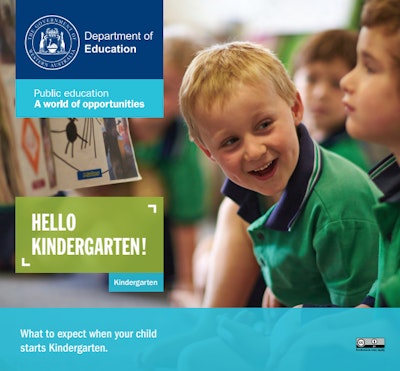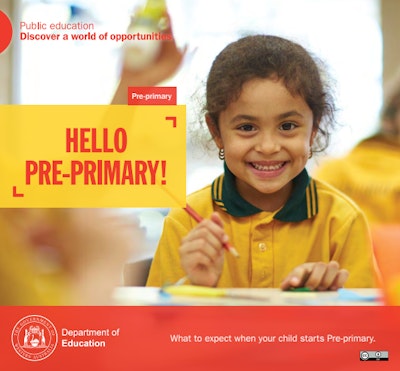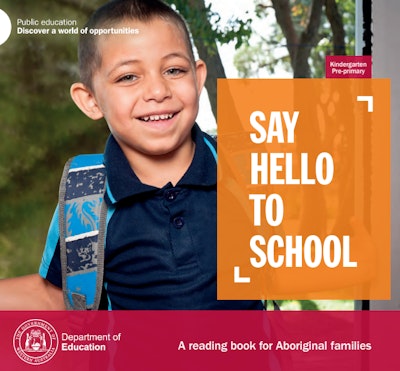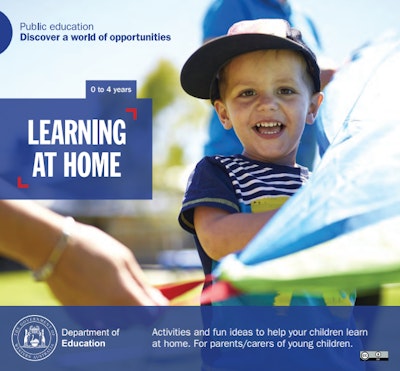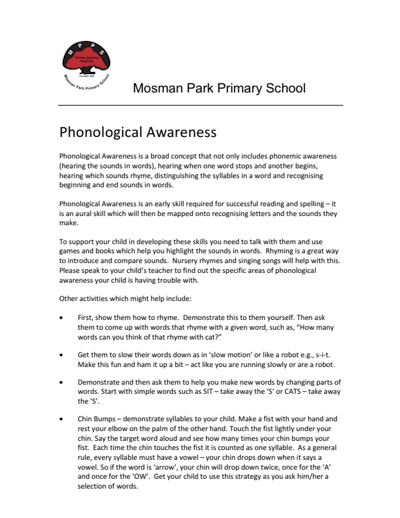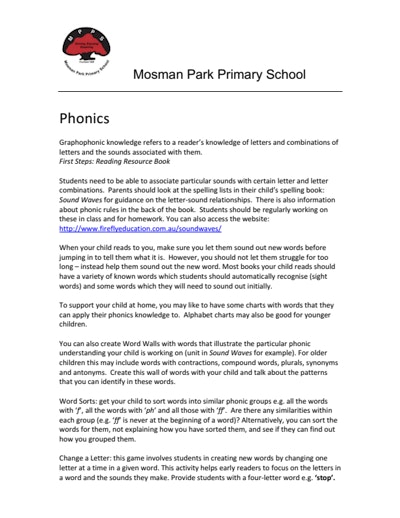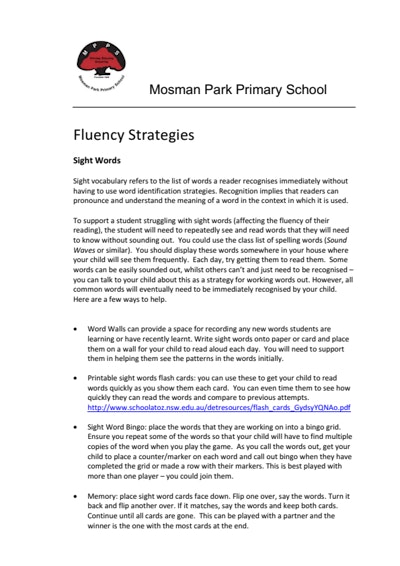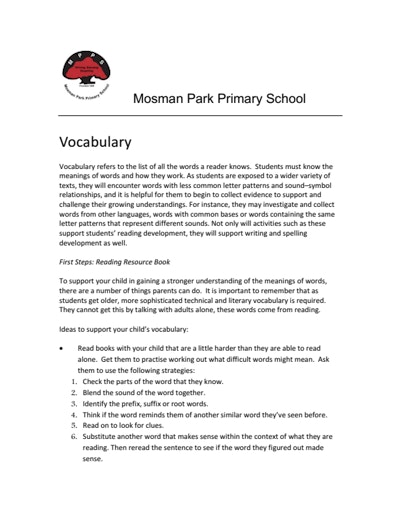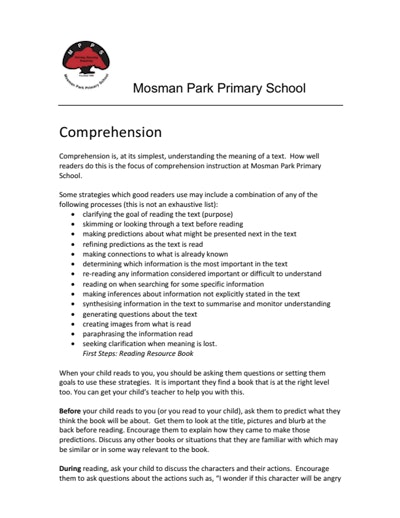Resources to Support Learning
The Department of Education has some terrific booklets and factsheets for families to use to support learning efforts.
Resources to Support Learning
The Department of Education has some terrific booklets and factsheets for families to use to support learning efforts.
Department of Education - Resources for Families
The following web pages have lots of material to explore including links to booklets with resources for helping pupils make progress in literacy and numeracy:
Literacy ideas for Parents
Top Tips for Supporting Literacy
Reading
- Read to your child each night. Even older children can benefit from hearing you read.
- Let your child see you read.
- Talk to your child about what you are reading yourself, or what you are reading with them.
- Get them to tell you about what they are reading. Ask them questions about it. Try to get them to explain or give opinions on the book or character actions.
- Find books that they will be interested in and want to read.
- If a book is hard, you read it to them. If it is easy, get them to read it to you. If it is just right, read it together.
- Discuss the pictures and tricky words that they may not have encountered before.
Spelling
- For spelling, get them to write simple texts – help them sound out words or remind them of spelling rules.
- Look for patterns in words – "Look, MAT has 'at' in it, just like CAT". Even older students need to look for patterns and rules to apply to help spell more complicated words.
- Play games that use spelling – Scrabble and Hangman.
- Help them proof-read their writing. But don't write it for them!
Writing
- Encourage them to write simple everyday texts.
- Encourage them to talk about what they are going to write so that they can practise it before they put pen to paper.
- Give them different ways to present their writing – using a computer / writing with coloured pencils / on nice paper or card.
Most Important
Make it fun and encourage them in whatever you do – don't make it stressful for you or your child.
Helpful Websites
- Information about the 5 keys to Literacy | fivefromfive
- Reading activities for your child to use to improve their reading | Nessy Reading and Spelling
- Help your child to read and write | A free course by John Walker, Sounds-Write
Reading Support Information and Ideas
Bedtime Reading
Amid warnings that bedtime stories have become a dying art, Jess Strutt explores the importance of reading aloud to your child.
Top Tips for Supporting Numeracy
Simple Ideas to Support Your Child in Maths
Resources:
- Packs of playing cards – 1 between 2
- Mini whiteboard, blackboard or paper to write on
- Use Ace=1, Jack=11, Queen=12, King=13
For all these activities, give a time limit of one minute/two minutes. This will aid speedy recall of addition, subtraction and times tables facts.
Aim towards 15-20 correct questions within a one minute time limit (aim for three seconds recall per question).
Times Tables Practise
Use Ace-Queen (1-12) from the playing cards. Turn over cards one at a time and multiply by times table to be reinforced – x2, x3, x4 etc. (focus on one times table).
Use the same cards but this time turn over two cards at the same time and multiply together. Keep track of answers to tally of 'personal best'.
Addition and Subtraction Practise
- With younger children use Ace-5. Focus on one number and add this number onto the card turned over e.g. 2+3, 2+1, 2+4 – as children become more confident increase cards to include 6, 7, 8, 9, 10.
- Restrict cards to be used to the level of children. Turn over two cards each time and add together. Keep a record of answers on mini whiteboard to keep tally of 'personal best'. As confidence improves include Jack, Queen and King.
- As children become more confident and fluency improves this activity will allow opportunity for mental addition with larger numbers. Start by turning over two cards, add together and then turn over one card each time adding onto the total of previous cards. To differentiate, limit playing cards used to lower numbers and increase as children become familiar and more fluent with addition. This also gives opportunity for mental strategies to be discussed – adding 10, adding 9, 8, 11, 12, number bonds to 10, odd and even numbers …
- Practise number bonds to 10. Use single digit playing cards, turn over one card at a time and subtract from 10. Record answers on mini whiteboard.
- Practise number bonds to 20. As No 4 above – can extend by including Jack, Queen and King.
- Find the Difference/How Many More – change instruction to encourage familiarity with vocabulary. As No 4 and No 5 above, but work out the difference between the playing card turned over and either 10 or 20 depending on which is used.
- Subtraction from 100/200. Use 1-10 and as children become more confident include Jack, Queen and King. Turn one card over each time and subtract from 100/200 or number decided by teacher. Keep record of answers on mini whiteboard.
- Extension activity for No 7 – start at 400, turn over a card, double it, then subtract from 400 – repeat
- Addition and subtraction – start at 200, if you turn over a red card add on and if you turn over a black card subtract.
Have fun!
Reprinted with kind permission - Kate French, Burrendah Primary School (June 2016)
